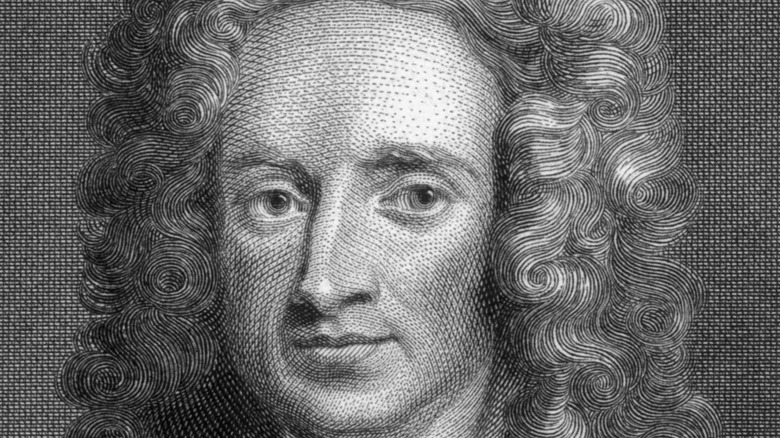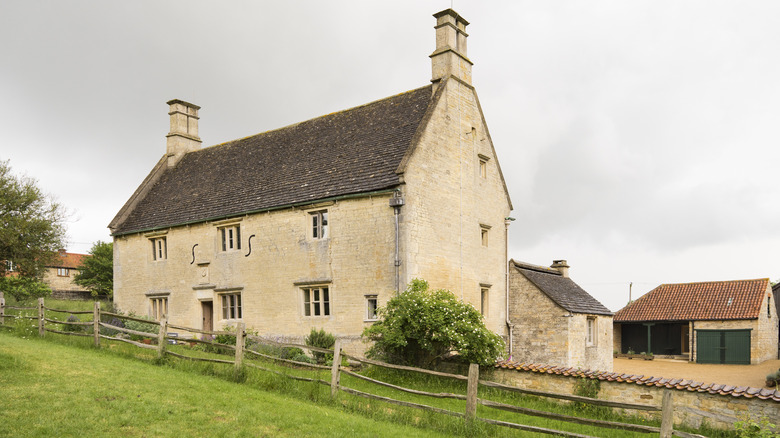The Truth About Isaac Newton's Difficult Childhood
Renowned physicist Isaac Newton's life got off to a rocky start, and he struggled much of the rest of his childhood. He was born prematurely on Christmas Day in 1642, according to the Julian calendar. These days, his birthdate is considered to be January 4, 1643, which reflects New Style that follows the Gregorian calendar (via Britannica). Newton wasn't expected to live long after his early arrival. According to the National Trust, a family member recalled how Newton once described how "when he was born, he was so little they could put him in a quart pot and so weakly that he was forced to have a bolster all round his neck to keep it on his shoulders." Somehow this tiny infant managed to survive, and he was named after his late father, who had died three months earlier (via History).
Newton only had a short time with his mother Hannah at the family home, Woolsthorpe Manor. She remarried when he was 3 years old and went to live with her new husband, Barnabas Smith, in a nearby town (via the National Trust). Newton was left in the care of his grandparents. At this point, he might have felt a lingering resentment of his mother and stepfather and must have struggled with feelings of abandonment. He later wrote up a list of his sins and recalled "threatning my father and mother Smith to burne them and the house over them," per Britannica.
Young Newton failed at farming
At the age of 10, Isaac Newton was reunited with his mother after his stepfather died. Hannah returned to Woolsthorpe Manor with Newton's three half-siblings in tow. This reunion didn't last long, however. Newton was sent away to school in nearby Grantham when he was 12 years old. He lived with the local apothecary, a person who made and sold medicines, because the walk to and from Woolsthorpe was too far. Newton wasn't the best student at first. He was far too interested in making his own mechanical devices, including a model windmill (via the National Trust). Newton later started making up his own experiments, including an effort to measure wind speed.
Around the time he turned 17, Newton was forced back to Woolsthorpe by his mother. She wanted him to manage the family's lands. But Newton was no farmer at heart, and he preferred to read a book than tend to a flock of sheep. Luckily, this failed agricultural experiment only lasted nine months, and Newton was allowed to return to his studies (via History). He later went to Trinity College at Cambridge University in 1661. At Trinity, Newton found his intellectual home and began to thrive. It was in a courtyard there that he first pondered his thoughts on gravity, and the rest is scientific history.

